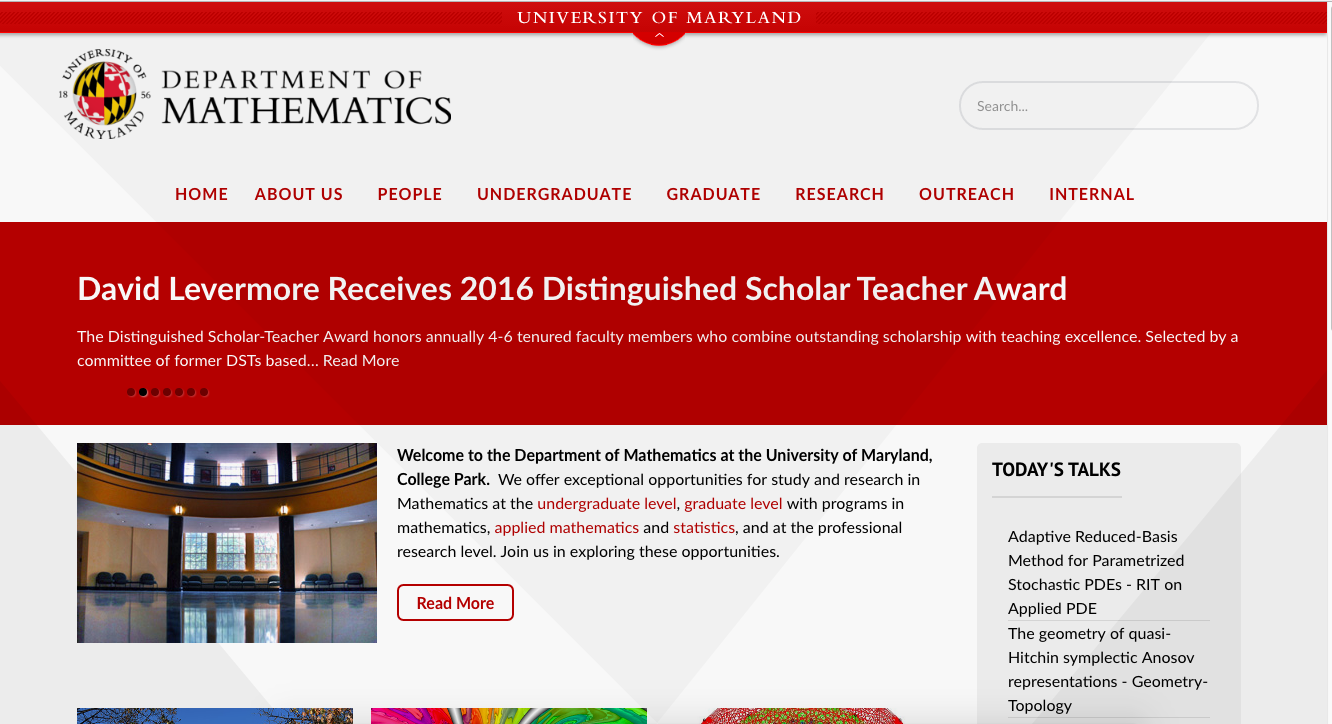A 2015 grant for $2.98 million from the Education Department has enabled 12 University System of Maryland state and community colleges to introduce a new statistics curriculum for students pursuing arts and social sciences.
After the University of System of Maryland received the grant, 12 state and community colleges have changed their developmental math course programs in the Maryland Mathematics Reform Initiative, introducing a new statistics curriculum for students pursuing degrees in liberal arts and social sciences.
The new program, which launched in August 2016, affects state and community colleges such as Anne Arundel Community College, Howard Community College and University of Baltimore. However, the program also influences the University of Maryland, as this university enrolled more than 2,510 transfer students out of 28,472 undergraduates this year, according to a university profile on IRPA.
“Even if a student comes [in] with math skills that are at the low end of middle school … the community colleges still have it set up with coursework [so] that in their second semester they can be in a standard elementary stat course,” mathematics department chairman Scott Wolpert said. “The way they did this is was by de-emphasizing the algebra component of these developmental math courses.”
The system isn’t so much pushing students to take statistics, but rather math courses that are relevant to their majors, said Nancy Shapiro, the system’s associate vice chancellor for education and outreach.
“[We] ask the professors in those disciplines what would be most useful for your students to know and understand so that they can be more successful in their own majors, rather than having the mathematics faculty think from the math lens of what all students need to know about mathematics,” Shapiro said.
This program will be most useful to students “who are either undecided about their major or whose college major relies on a fundamental-studies statistics course either in place of, or in addition to a traditional college algebra course,” according to a system committee meeting overview. Wolpert said the math requirements will not change for students enrolled in science and technology majors.
This university requires students to take an analytical reasoning class, which can be satisfied by courses in statistics, logic or calculus.
And although some majors require less math than others, Wolpert stressed even if students aren’t planning to go into a math-heavy career, statistics is a valuable skill.
“Whenever we use our smartphone, whenever we go on the web … data or even big data is involved in that,” Wolpert said.
Senior Katy Kelly, a communication and government and politics major, said while she dislikes math, and finds statistics harder than the algebra in MATH111: Introduction to Probability, she does see the relevance of statistics in both of her majors.
“It is useful, especially just looking at government research or comm study research,” Kelly said. “They’ve definitely used stat to check their facts, so it’s useful to see how they do it and to know how they do it.”
Twelve institutions will benefit from this grant, including five universities and seven community colleges, according to the system release.



